SPEAKERS
Plenary Speakers
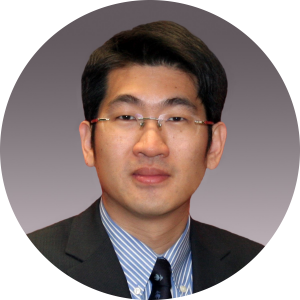 |
Dr Shih-Chi Chen
Dr Shih-Chi Chen is a Professor in the Department of Mechanical and Automation Engineering at the Chinese University of Hong Kong. He received his B.S. degree in Mechanical Engineering from the National Tsing Hua University, Taiwan, in 1999; and his S.M. and Ph.D. degrees in Mechanical Engineering from the Massachusetts Institute of Technology, Cambridge, in 2003 and 2007, respectively. Following his graduate work, he entered a post-doctoral fellowship in the Wellman Center for Photomedicine, Harvard Medical School, where his research focused on biomedical optics and endomicroscopy. From 2009 to 2011, he was a Senior Scientist at Nano Terra, Inc., a start-up company founded by Prof George Whitesides at Harvard University, to develop precision instruments for novel nanofabrication processes. His current research interests include ultrafast laser applications, biomedical optics, precision engineering, and nanomanufacturing. Dr Chen is a member of the American Society for Precision Engineering, American Society of Mechanical Engineers, SPIE, and the Optical Society (OSA); and currently serves as the Associate Editor of ASME Journal of Micro- and Nano-Manufacturing, IEEE Transactions on Nanotechnology, and HKIE Transactions. In 2003 and 2018, he received the prestigious R&D 100 Awards for developing a six-axis nanopositioner and an ultrafast nanoscale 3D printer respectively. |
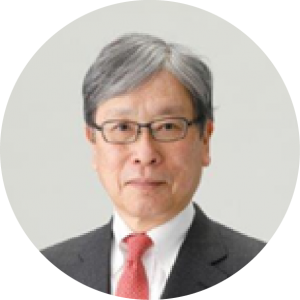 |
Dr Makoto Fujishima Dr Makoto Fujishima holds the position of Vice President at DMG MORI CO., LTD. He joined the global machine tool manufacturer in 1981 and was in charge of the Electrical Circuit and Control Department until he became President of the R&D Headquarters in 2019. Since August 2021, he has been Vice President and Corporate Head of Quality. In 2002, Dr Fujishima received his Ph.D. at Kyoto University in mechanical engineering in 2002. His research interests include machine tool mechatronics, control, cutting and additive manufacturing. Has has published 62 papers and holds 65 patents. He currently serves as the President of the Japan Society for Precision Engineering and is a Fellow at the Japan Society of Mechanical Engineers. He was division leader of manufacturing and machine tool division of JSME in 2021, he was also a Chairman of Corporate Member group at CIRP from 2021 to 2022.
|
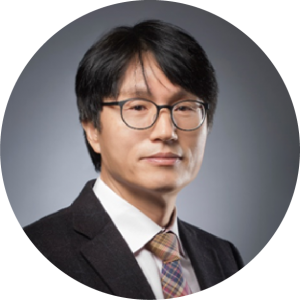 |
Professor Daehie Hong Daehie Hong received the B.S. and M.S. degrees in department of mechanical engineering from Korea University, Seoul, Korea, in 1985 and 1987, respectively, and the Ph.D. degree in department of mechanical and aeronautical engineering and from University of California at Davis, Davis, CA, USA in 1994. Since 1998, he has been with the Department of Mechanical Engineering, Korea University, Seoul, Korea, where he has been a department head and vice dean, and is currently a professor. His current research interests include construction automation and robotics, additive construction, mechatronics based machine design and control, minimally invasive surgical robots and instruments. Dr. Hong has actively participated in academic societies, KSPE, KSME, IAARC, as a board member, editor, conference organizer, and so on. Especially, he was serving as a president of the KSPE in 2021. He published hundreds of technical papers and holds more than 100 domestic and international patents. He has been a CEO of a startup company, EndoRobotics, since 2019 |
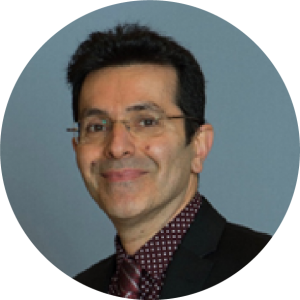 |
Professor Saeid Nahavandi Saeid Nahavandi received a Ph.D. from Durham University, U.K. in 1991. He is an Alfred Deakin Professor, Pro Vice-Chancellor, Chair of Engineering, and the Founding and current Director of the Institute for Intelligent Systems Research and Innovation at Deakin University. His research interests include modeling of complex systems, robotics and haptics. He has published over 1000 scientific papers in various international journals and conferences. Saeid was the recipient of the Researcher of the Year for Australian Space Awards 2021, Australian Defence Industry Awards – Winner of Innovator of the year, The Essington Lewis Awards, and Australian Engineering Excellence Awards – Professional Engineer of the Year. Saeid has carried out industry-based research with several major international companies such as Airbus, Boeing, Bosch, Ford Motor Company, General Motors, General Dynamics, Holden, Lockheed Martin, Nissan, Thales and Vestas just to name a few. Professor Nahavandi holds six patents, two of which have resulted in two very successful start-ups (Universal Motion Simulator Pty Ltd and FLAIM Systems Pty Ltd). Professor Nahavandi is the Senior Associate Editor: IEEE Systems Journal, Associate Editor of IEEE Transactions on Cybernetics, IEEE Press Editorial Board member and Vice President: Human-Machine Systems, IEEE SMCS. |
 |
Professor David Rosen David Rosen is a Principal Research Scientist at the Institute for High Performance Computing and SIMTech, both A*STAR institutes in Singapore. He was a Professor in the School of Mechanical Engineering at the Georgia Institute of Technology for many years. Additionally, he held faculty and research positions at the Singapore University of Technology & Design. He received his Ph.D. at the University of Massachusetts in mechanical engineering. His research interests include computer-aided design, additive manufacturing (AM), and design methodology, with a specific interest in design for additive manufacturing. He is a Fellow of ASME. Also, he is the recipient of the 2013 Solid Freeform Fabrication Symposium, International Freeform and Additive Manufacturing Excellence (FAME) Award and is a co-author of a leading textbook on AM. In the standards community, he chairs the ASTM F42 subcommittee on design for additive manufacturing and was awarded the ASTM Award of Merit and promoted to Fellow of ASTM in early 2022. |
 |
Professor Sung Cheng-Kuo Cheng-Kuo Sung received his Ph.D. from the Department of Mechanical Engineering, Michigan State University, 1986. Currently, he is an emeritus professor of National Tsing Hua University and Director of Hiwin-Tsing Hua Joint Research Center. Prof. Sung’s research interest consists of precision mechatronics design, machine dynamics, and machine design. His studies have covered many fundamental aspects of modeling, simulation and experimentation of precision machine devices and systems. He has more than 300 publications including 43 patents, 108 journal papers and 192 conference papers. Most of them are strongly linked with industries. He had initiated and led a number of nation-wide education and research programs in Taiwan, including Precision Mechatronics Intellectual Fostering Program, “A+ Machine Tools” Program, Additive Manufacturing Program, etc. He is a board member of CSME (Chinese Society of Mechanical Engineer) and ASPEN (Asian Society for Precision Engineering and Nanotechnology), and Fellow of ASME and CSME. |
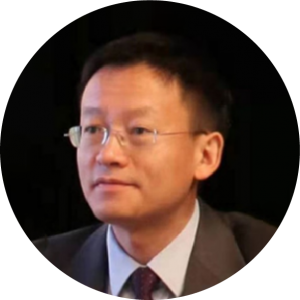 |
Professor Yu Tian Prof Yu Tian is the director of the State Key Laboratory of Tribology at Tsinghua University of China. Tian gained his B.S. and Ph.D. degrees in mechanical engineering at Tsinghua University in 1998 and 2002, respectively. He subsequently joined the State Key Laboratory of Tribology, Tsinghua university. He was a postdoc at the University of California, Santa Barbara with Professor Jacob Israelachvili from 2005 to 2007. His research interest is the science and technology at the interface of physics, materials, engineering, and biology to understand the mechanism of adhesion, friction, and rheology to implement technological inventions to benefit the society. |
Invited Speakers
| NAME | UNIVERSITY |
| Biao Chen | Northwestern Polytechnical University |
| Hui Deng | Southern University of Science and Technology |
| Stefanie Feih | Griffith University |
| Jiang Guo | Dalian University of Technology |
| Ping Guo | Northwestern University |
| Koji Hagihara | Nagoya Institute of Technology |
| Christopher Hutchinson | Monash University |
| Xiaopeng Li | University of New South Wales |
| Jitendra P. Khatait | Indian Institute of Technology (IIT) Delhi |
| Xu Song | Chinese University of Hong Kong |
| Shihua Wang | National Metrology Center |
| Huiliang Wei | Nanjing University of Science & Technology |
| Baoxi Xu | National Metrology Center |
| Ming Yan | Southern University of Science and Technology |
| Hiroyuki Y Yasuda | Osaka University |
| Lum Guo Zhan | Nanyang Technological University |
| Xinquan Zhang | Shanghai Jiao Tong University |
| Ming Wang Fu | The Hong Kong Polytechnic University |